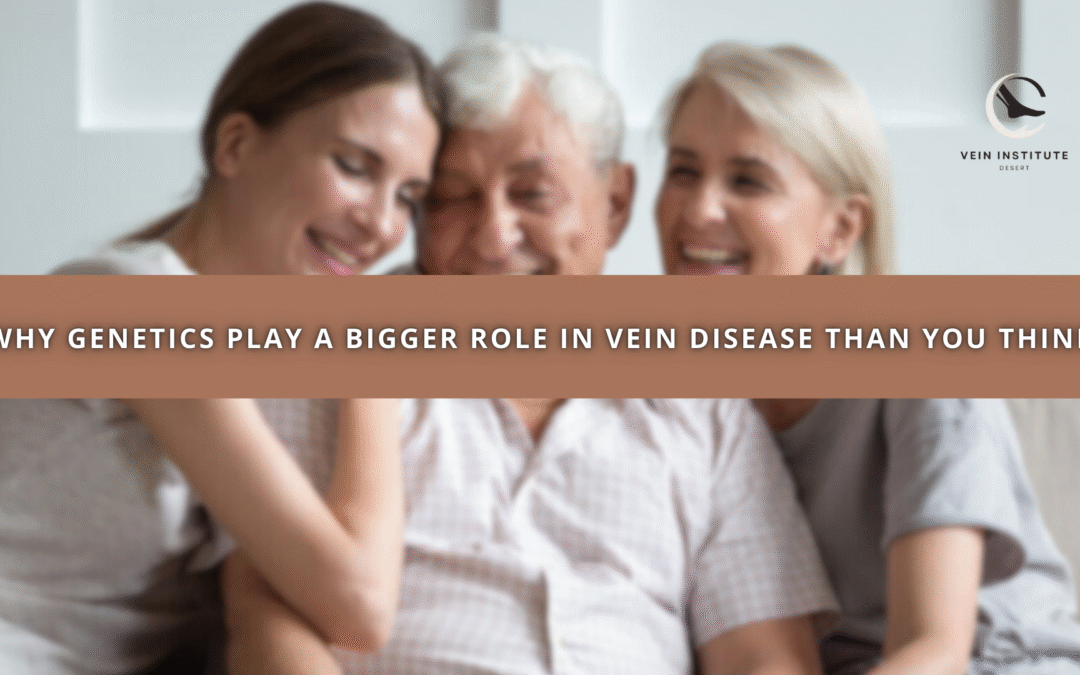Genetics and Vein Disease: What You Should Know
🧬 Why Family History Shapes Your Vein Health
Many patients are surprised to learn that lifestyle habits alone are not the main cause of vein disease. Genetics often set the stage long before the first symptoms appear. If one or both parents struggled with varicose or spider veins, the likelihood of developing them increases significantly. Hereditary factors influence vein wall strength, valve function, and the efficiency of blood flow. This means even someone who exercises, maintains a healthy weight, and avoids smoking may still experience venous issues if they have a strong family predisposition.
Researchers estimate that genetics can account for up to 80% of the risk of chronic venous insufficiency. Environmental triggers like standing for long hours or pregnancy may accelerate the process, but the underlying vulnerability is already written in a person’s DNA. Understanding this genetic influence allows patients to take proactive steps earlier rather than waiting for advanced symptoms.
🩺 Insights From a Vein Specialist on Hereditary Risks
A vein specialist emphasizes that genetics do not guarantee vein disease but rather increase the probability of it developing over time. The role of the specialist is to evaluate not just visible symptoms but also family history, lifestyle, and overall vascular health.
For example, someone with a strong hereditary link may develop varicose veins in their 20s or 30s, while another person with no family history might never experience significant issues despite risk factors like long work shifts on their feet. Specialists can recommend early monitoring, diagnostic imaging, and preventive strategies tailored to each patient’s unique profile.
Importantly, hereditary vein conditions can also worsen faster once they appear. This is why early evaluation by a vein professional is critical for maintaining long-term vein health.
⚕️ The Role of Non Invasive Vein Treatment in Genetic Conditions
When genetics play a strong role, early detection and intervention become vital. Advances in modern medicine have made non invasive vein treatment a highly effective option for managing hereditary vein disease. These procedures are designed to restore healthy blood flow without the need for lengthy recovery times or invasive surgery.
Techniques such as laser therapy, sclerotherapy, and radiofrequency ablation are particularly valuable for patients with a genetic predisposition because they address the underlying problem while minimizing disruption to everyday life. Just as importantly, these treatments can prevent further complications like skin changes, swelling, or ulceration, which are more common in individuals with inherited vein weaknesses.
Patients with a family history of vein disease should not wait until symptoms become severe. Instead, they should seek early guidance on treatment options that are safe, effective, and minimally disruptive.
💬 Why a Vein Consultation Can Help You Stay Ahead
Scheduling a vein consultation is one of the most proactive steps someone with hereditary risk can take. During this visit, the physician can perform a thorough assessment, including ultrasound imaging, to identify even subtle vein changes that may not yet be visible on the surface.
This personalized approach allows the doctor to recommend lifestyle adjustments, compression therapy, or minimally invasive treatments based on the individual’s genetic background. Patients often find reassurance in knowing they have a tailored plan that addresses both their current condition and their long-term risks.
Consultations are not just about treating existing symptoms—they are about preventing future complications and helping patients maintain an active, healthy lifestyle despite their genetic predisposition.
🌴 Expert Care for Genetic Vein Disease in Palm Desert
For residents of California, The Vein Institute of the Desert in Palm Desert provides advanced care for patients with hereditary risks. By combining cutting-edge procedures with a personalized approach, the clinic helps individuals manage vein health proactively.
Understanding the genetic component of vein disease changes the way patients approach prevention and treatment. Rather than seeing varicose veins as an inevitable part of aging, they can take charge of their health with expert medical support. With the right combination of professional care and mindful daily habits, even those with strong family histories can reduce symptoms, slow progression, and maintain better long-term vein health.

Andy Sharify
The founder and owner of The Vein Institute of the Desert. He oversees the clinic, ensuring exceptional service and a patient-focused approach to vein care. Andy is dedicated to creating a comfortable and supportive environment for every patient.
